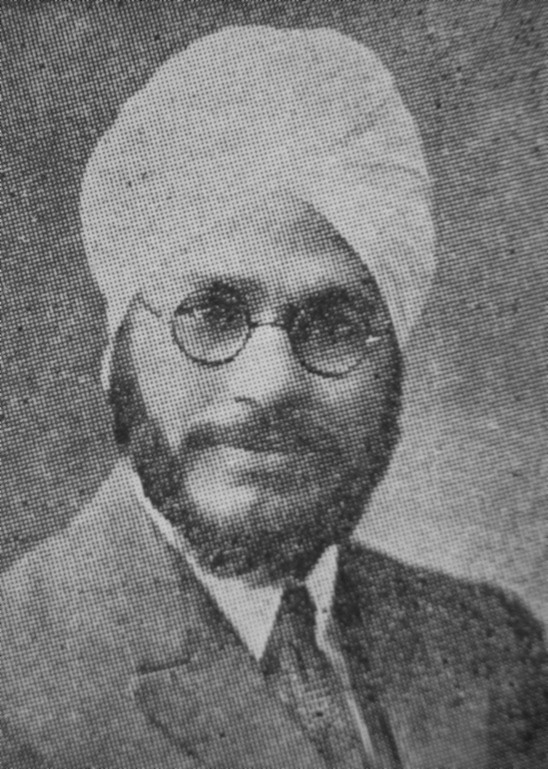|
Imperial Entomologist
Imperial Entomologist was a position in British India for an entomologist, it was created mainly for applied entomology in pest control and for utilization of useful insects such as honey bees, lac insects, and who was also involved in research and developing control measures against insects of veterinary and medical importance. The position was abolished after Indian independence in 1947. The position was occupied by: *1903–1912 Harold Maxwell-Lefroy who replaced the government position of entomologist briefly held by Lionel de Niceville in 1901 *1913–1934 Thomas Bainbrigge Fletcher * Muhammad Afzal Husain (Acting Imperial Entomologist, 1926) *1934–c.1944 Hem Singh Pruthi *c.1944–1947 P.V. Isaac *1947 ''Position abolished'' In 1907 Frank Milburn Howlett Francis "Frank" Milburn Howlett (5 January 1877 – 20 August 1920) was a British entomologist who served as a Second Imperial Entomologist and as Imperial Pathological Entomologist in India. He specialized in insects ... [...More Info...] [...Related Items...] OR: [Wikipedia] [Google] [Baidu] |
Harold Maxwell-Lefroy
Harold Maxwell-Lefroy (20 January 1877 – 14 October 1925) was an English entomologist. He served as a Professor of Entomology at Imperial College London and as the second Imperial Entomologist to India. He left India after the death of two of his children from insect-borne diseases. He worked on applied entomology and initiated experiments on the use of chemicals to control insects. A formula he developed was utilized to save Westminster Hall from destruction by wood-boring beetles, while others were used to control lice in the trenches during the First World War. The success of his chemicals led to increased demand and the founding of Rentokil, a company for insecticide production. He was killed in an accident while experimenting on fumigants to control insects. Biography Maxwell-Lefroy was born in the village of Crondall, Hampshire, to Charles James Maxwell Lefroy of the 14th Hussars (whose grandfather was James Walker who had designed the Regent or Vauxhall Bridge in 1816) a ... [...More Info...] [...Related Items...] OR: [Wikipedia] [Google] [Baidu] |
Lionel De Niceville , a defense in the game of bridge
{{disambiguation ...
__TOC__ Lionel may refer to: Name *Lionel (given name) Places *Lionel, Lewis, a village in the Outer Hebrides of Scotland *Lionel Town, Jamaica, a settlement Brands and enterprises *Lionel, LLC, an American designer and importer of toy trains and model railroads, which owns the trademarks and most of the product rights associated with Lionel Corp., but is not directly related *Lionel Corporation, an American manufacturer and retailer of toy trains and model railroads Other uses *Lionel (bridge) Lionel is a contract bridge bidding convention used in defense against an opposing 1NT openings. Using Lionel, over a 1NT opening of the opponents: :* a double is conventional and denotes spades and a lower suit (4-4 or longer), :* a 2/2 overcall de ... [...More Info...] [...Related Items...] OR: [Wikipedia] [Google] [Baidu] |
Thomas Bainbrigge Fletcher
Thomas Bainbrigge Fletcher (25 March 1878 – 30 April 1950) was an English entomologist. Although an amateur lepidopterist who worked in the Royal Navy, he became an expert on "microlepidoptera" and was appointed as the second Imperial Entomologist in India to succeed Harold Maxwell Lefroy. Although only an amateur entomologist, he is credited with reorganizing entomological research in India by coordinating and directing research, efficient sharing of findings and a reduction in duplication of research work. Fletcher's father William Bainbrigge Fletcher was a fleet surgeon in the Royal Navy (retired 1890). Thomas became a naval paymaster until he retired in 1915. While in the navy, he joined the Percy Sladen Trust Expedition to the Indian Ocean and was appointed Imperial Entomologist in India, succeeding Harold Maxwell-Lefroy at the Imperial Agricultural Research Institute at Pusa. Although lacking academic qualifications in entomology, he was a meticulous naturalist and very ... [...More Info...] [...Related Items...] OR: [Wikipedia] [Google] [Baidu] |
Muhammad Afzal Husain
Muhammad Afzal Husain (10 June 1889 – 1 November 1970) was a British Indian and later Pakistani entomologist who served briefly as an officiating Imperial Entomologist is considered father of entomology in Pakistan. He was Vice Chancellor of the Punjab University from 1938 to 1960. He was conferred the title Khan Bahadur. Husain was born in a prosperous family from Batala, Gurdaspur District. His father, Husain Baksh, was a Persian and Arabic scholar who worked as a district judge. Husain was a younger half-brother of Sir Fazal-i-Hussain, KCIE. During his early years he moved around Punjab and studied at schools in cities where his father was posted on transfers. He went to the Government College, Lahore with an Alfred Patiala Research Scholarship (1911-1913) before going to Christ's College, Cambridge for postgraduate studies. He was a Foundation Scholar in 1914, a Bachelor Scholar in 1916, and won the Frank Smart Prize in Zoology for 1916 and the Charles Darwin Prize in 1917. ... [...More Info...] [...Related Items...] OR: [Wikipedia] [Google] [Baidu] |
Hem Singh Pruthi
Hem Singh Pruthi (23 February 1897 – 23 December 1969) was an Indian entomologist who served as Imperial Entomologist, being the first native Indian in that position. He was born at Begowala, Sialkot where his father Dr Bhagat Singh Pruti worked in the Police and Jail Hospital at Gujranwala. He studied locally and completed his MSc at the Government College in Lahore and joined Peterhouse, Cambridge, where he was a Charles Abercrombie Smith Student and obtained a Ph.D. in 1924. Pruthi received an Sc.D. from the University of Cambridge in 1943. He then became an assistant superintendent at the Zoological Survey of India at Calcutta. He worked mainly on the Hemiptera. He then joined the Indian Agricultural Research Institute and became the Imperial Entomologist, succeeding T.B. Fletcher in 1934. In 1938 he founded the Entomological Society of India. Pruthi's work during this period was mainly on insects of economic importance. He was a plant protection advisor to the Government of ... [...More Info...] [...Related Items...] OR: [Wikipedia] [Google] [Baidu] |


